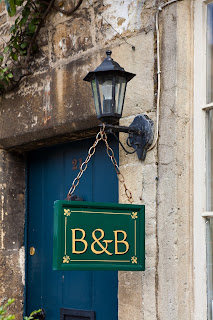 |
| Airbnb connects travelers with homeowners as an alternative to hotels. Image: Shutterstock |
City governments and hospitality corporations are currently in a nail-biting fit over the popularity of Airbnb, a service that connects travelers with home owners as an alternative to hotels. For those that participate, it’s a major win. Hosts make a healthy side income without worrying about the business end of things, lodgers get prices at a significantly lower price than the average hotel, and Airbnb’s revenue is expected to exceed $1 billion this year. Governments eager to tax money are worried about the lost revenue, although most openly claim their concern for the health and safety of guests in “unlicensed” hotels.
The city of San
Francisco, where Airbnb started, claims that hosts have caused the loss $1.4
million in hotel tax collection. Earlier
this spring, the service was declared illegal in New York City. The law
apparently has not stopped hosts from the city from listing their home as an
available accommodation. Airbnb is
fighting the ruling, but lawmakers seem reluctant to compromise. Many say the purpose of the law being used to
block Airbnb was intended to help tenants, and it is now being used against
them. New Orleans is look at a similar
ban to the service.
 |
| Hotels are understandably opposed to services like Airbnb, which could cost them billions. Image: Shutterstock |
The reluctance of
industry and governments make sense, as both groups stand to lose a significant
amount of money at the success of Airbnb.
The interesting part is that the couch surfing business seems to be
under more scrutiny than the rest of sharing economy businesses, such as Zip
Car or Uniiverse. The reason for that is
perhaps because there are already convenient lodging regulation laws that make
it easier to fight the business, or that the hotel lobby is more influential in
local governments.
إرسال تعليق